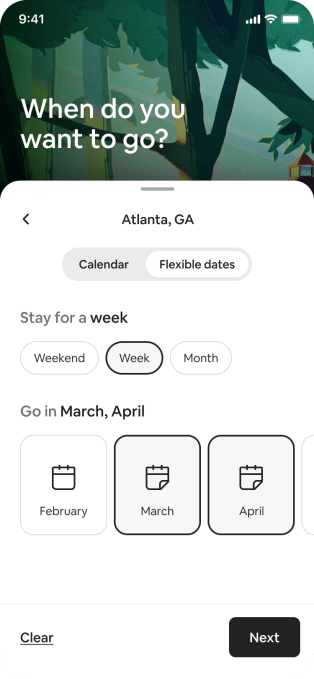Since going public, most of the news out of Airbnb has been around policy. Today, the company has an announcement that’s all about the product.
As the pandemic evolves the way we do everything, and we collectively realize that much of that new behavior will be permanent, tech companies are looking to evolve alongside us.
Airbnb is today introducing Flexible Search, which will allow users to forgo putting in exact dates when they look to book lodging on the platform. Instead, users can search for a weekend getaway, week-long vacation, month-long vacation or months-long vacation without setting specific dates.
Not only does this give guests more options to browse through, but it should also increase exposure for hosts.

Image Credits: Airbnb
Here’s what the company had to say about it in a blog post:
It’s no surprise COVID-19 continues to change the way we travel, and in addition to redesigning our platform last year to make nearby and longer-term stays easier to find and book, our new Flexible Dates feature aligns with a broader shift in how people will travel in the future. The traditional travel industry was built around fixed destinations with fixed dates in mind, but that model no longer meets the needs of today’s travelers.
Travel, and air travel in particular, have been devastated by the pandemic in 2020. Signs of a slow recovery are starting to sprout up, but the move to remote work (which has resulted in much, much less business travel) means that a good chunk of the depression in the travel industry is here to stay. That said, Airbnb’s travel trends report shows that the majority of folks (54 percent) miss traveling and are planning their next getaway.
Flexible Search will allow users to get back in the mindset of travel without having an exact plan around dates, which is particularly important as the positivity rates around the globe and country continue to shift.
from TechCrunch https://ift.tt/3pQFXnN
via IFTTT
Comments
Post a Comment